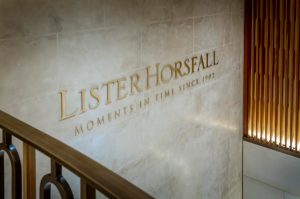Inflation rises to 1% due to easing of lockdown measures

Consumer price inflation jumped to one per cent in July, from 0.6% in June, the Office for National Statistics (ONS) revealed this morning.
It said it was due to lockdown measures being eased further.
The ONS said the rise was boosted by rising petrol and clothing prices.
“In addition, prices for private dental treatment, physiotherapy and haircuts have increased with the need for PPE contributing to costs,” it said.
The Bank of England said earlier this month that it expects inflation to drop again soon.
It could fall to -0.3% in August, the central bank said.
Laura Suter, personal finance analyst at Manchester-based investment platform AJ Bell, said: “Despite the Bank of England predicting inflation would fall to near zero this year as a result of COVID-19, the rate has leapt this Summer from 0.6% in June to one per cent in July.
“Rising fuel prices, following the oil price slump earlier this year, have helped to push prices up.
“What’s more, the lack of Summer sales on the high street mean that clothing and footwear is less discounted than it was last Summer, helping to push up prices in comparison to last year.
“Lockdown and the current pandemic has trampled over the usual seasons that clothing shops operate under, affecting prices.”
She added: “The cost of haircuts has risen as the public rushed to re-opening salons to get their lockdown hair fixed, with the cost of the additional PPE and a reduction in customers to respect social distancing likely to have driven much of the price rises.
“Other factors that helped to push prices up were a small increase in the cost of private dental and physiotherapy services, as people emerged from lockdown and urgently needed to see medical experts.
“There was also a small increase in the cost of booze, after pubs re-opened and people went out more to enjoy the hot weather.”
She said: “The rise in inflation is another blow for savers who have been hit with successive cuts to interest rates since the start of the year.
“The only saving grace was that inflation was lower, meaning that getting a real return on their money was at least possible with the top-paying accounts.
“Now just one easy-access account pays more than inflation, NS&I’s Income Bonds, and that is only open to those with £500 or more to save.”
She also revealed that the leap in inflation in the past month is a blow for commuters, as the July measure of RPI inflation is used for rail ticket price rises next year, meaning we’ll all be paying more to commute.
The RPI measure of inflation rose from 1.1% in June to 1.6% in July – marking the highest rate since lockdown kicked in.
“While lots of people have ditched the daily commute and are still working from home, it’s unlikely that will still be happening at the same scale by next year when price rises come in.
“Despite the hike the price rise will still be less than the increase that commuters saw this year, when prices rose by 2.8%.
“But continual years of high inflation increases and the insistence on using the RPI measure to calculate the price hike means that commuters are paying sky-high fares.
“Commuters on popular routes will see their costs of getting to work rise again from January, with an annual Oxford to London season ticket including tube travel seeing a £100 hike from £6,288 to £6,388, while the annual cost of going from Tunbridge Wells to London (without tube travel) will leap over the £5,000 mark – rising by £79 to £5,007.
“The RPI measure of inflation has been classed as ‘flawed’ and is widely derided as an inaccurate measure of price rises.
“However, a government review to establish a timeline for abolishing the rate and shifting to CPIH has been delayed by the current pandemic.
“The plans were due to be announced in March’s Budget but has now be shuffled to the Autumn, meaning an announcement may come alongside the Autumn Statement this year.”








